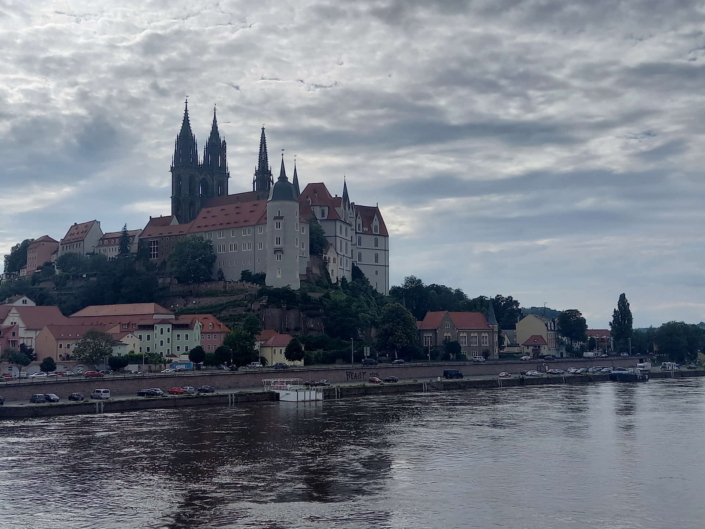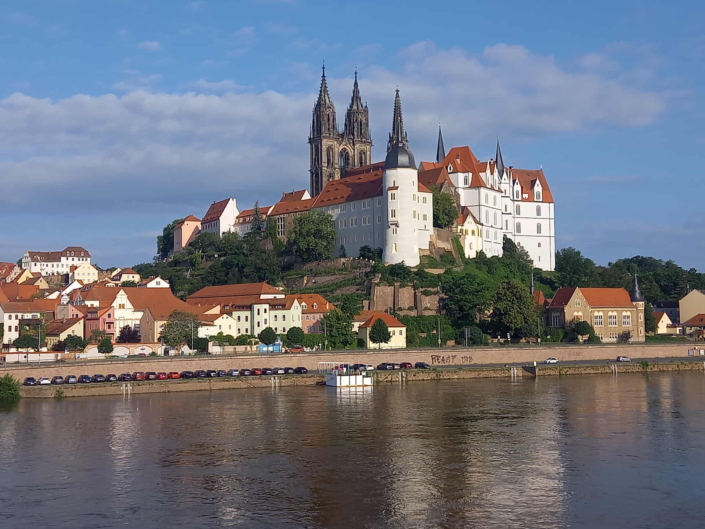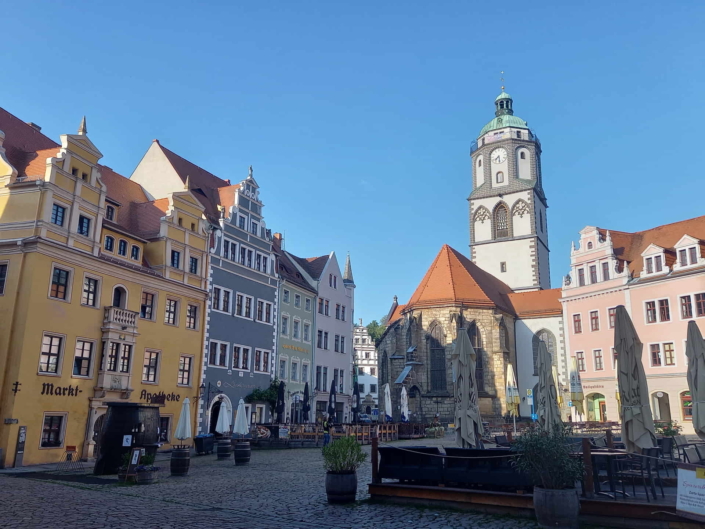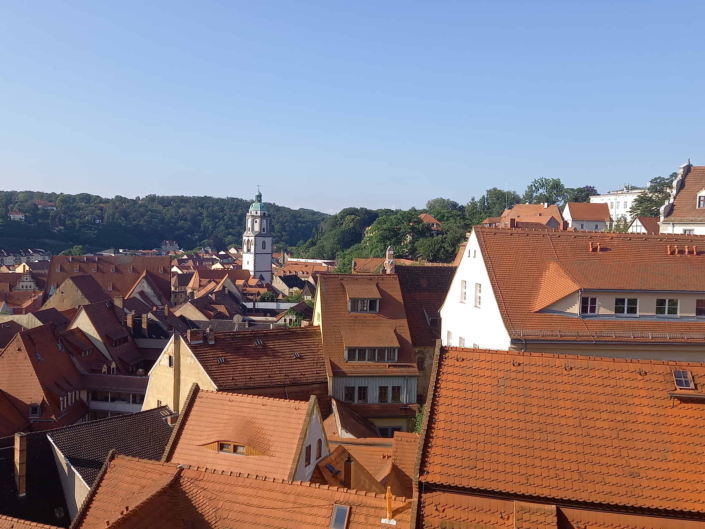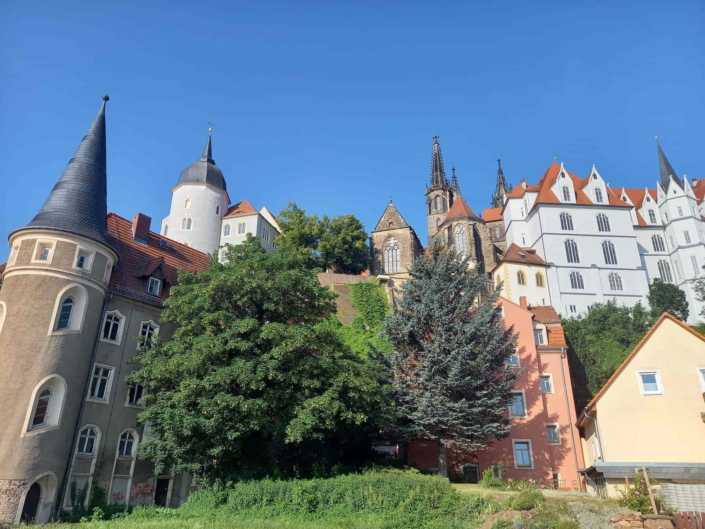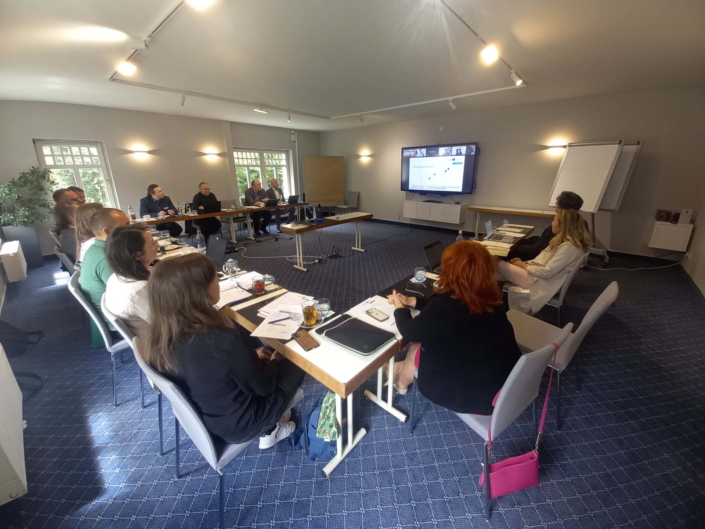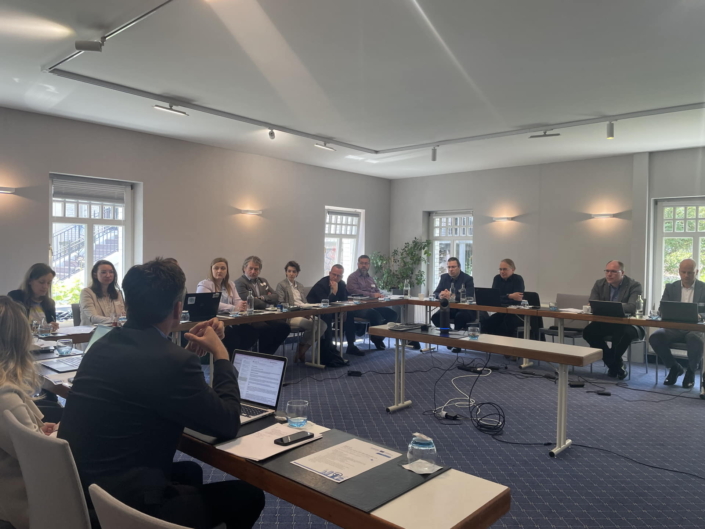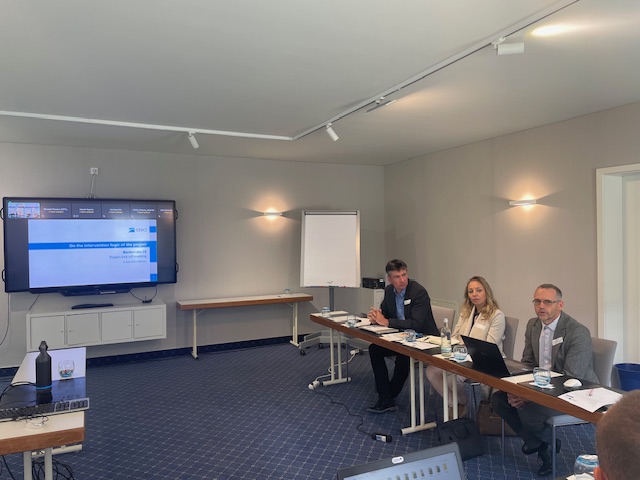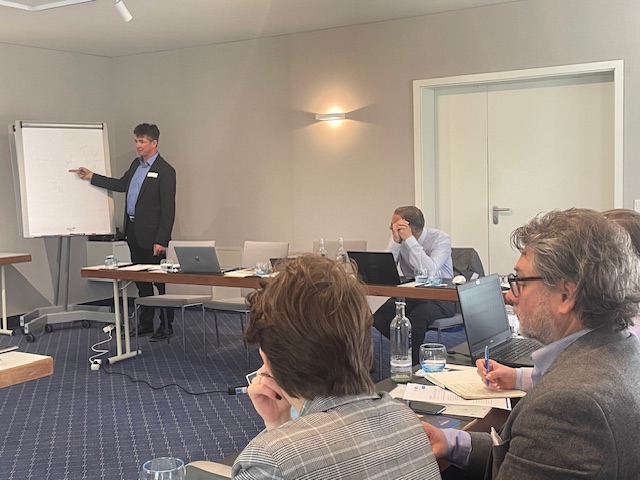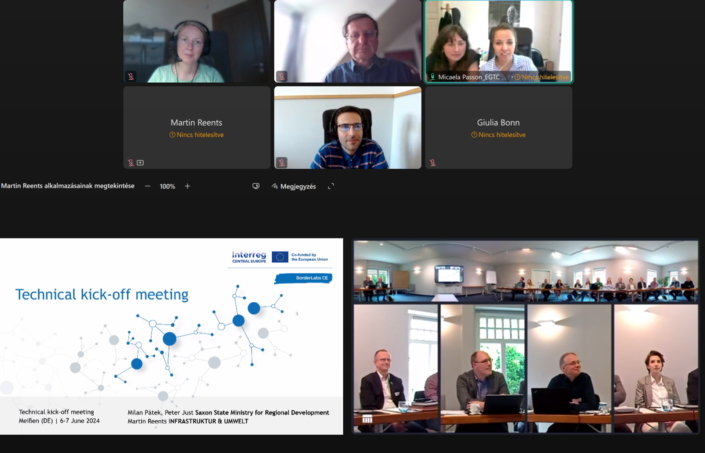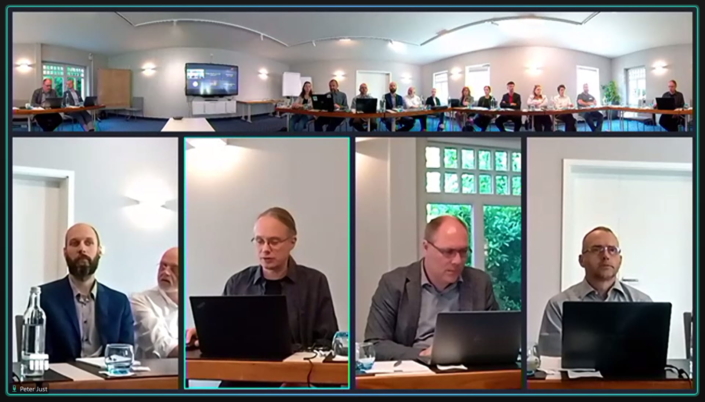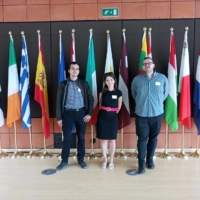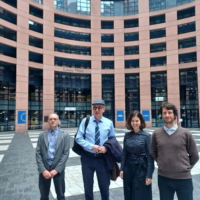Technical kick-off of the BorderLabs CE transnational project
Project development | 18 June 2024
Upon the invitation of the Saxon State Ministry for Regional Development as Lead Partner, the consortium of the ‘Participatory cross-border governance for transition management in central European cross-border regions’ (acronym: BorderLabs CE) project held its kick-off meeting in Meissen.
The project aims at improving internal cohesion of the programme area through PILOT interventions in three fields, namely integrated cross-border planning, participatory governance and the management of cross-border obstacles. The region which is cross-cut by several macroregional structures and the former Iron Curtain needs models, tools and solutions to improve the level of integration whose key players are cross-border regions and functional areas. The PILOT partners represent 5 border areas which might be seen exemplary for different reasons.
- The twin cities of Frankfurt / Oder and Słubice (DE/PL) have been developing their participatory planning methods for decades. These methods will be developed further with special focus on transition challenges and streamlined through the current project in other twin cities areas in Central Europe and beyond.
- The Euroregion Neisse-Nysa-Nisa (DE/CZ/PL) was the first euroregion of the former Communist Bloc established in 1991 which has created numerous contacts and initiatives across the tri-border area, and, with the help of the project, aims at preparing the integrated development plan for the region.
- Upper Austria is an advanced territory of cross-border functional ties, especially with Bavaria. Their goal is to identify those legal and administrative obstacles preventing further integration and find solutions thereto within the Bavarian and the Czech contexts.
- The Ister-Granum EGTC (HU/SK) started developing its cross-border local product label and network in 2012, which now comprises more than 300 local producers. With the help of the project, the grouping will explore the conditions for the development of cross-border supply chains based on the capacities of the local product network.
- EGTC GO (IT/SI), which will host the European Capital of Culture in 2025 intends to develop the slow tourism system around Gorizia and Nova Gorica.
All these PILOTs will be used for generalising potential tools for better cross-border participatory planning and governance, the elimination of persisting border obstacles and to improve cross-border integration within the programme area. The lessons learnt will be summarised in a Charter which can be considered as a kind of territorial agenda for Central Europe addressing the hurdles of separation. These general conclusions will be drawn with the coordination of the Lead Partner and the team of CESCI taking part in the project as technical and communication expert.
The participants of the kick-off meeting (the representatives of the Lead Partner, CESCI, the City of Frankfurt Oder, the Institute for Territorial Development of Wroclaw, the EGTC NOVUM, the Euroregion Neisse-Nysa-Nisa, the State Government of Upper Austria, the Ister-Granum EGTC, and the EGTC GO (online)) discussed the administrative questions related to the launch of the project which started on the 1st of June; the content and tasks of the project in general; and the next steps of the PILOT-ing exercise. Finally, they decided to intend to couple the kick-off conference with the Art of Cooperation event series which will be held in November under the Hungarian Presidency.
